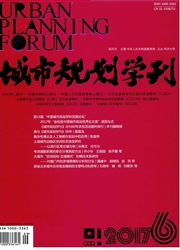

 中文摘要:
中文摘要:
基于快速城市化过程中乡村地域物质空间发生剧烈变化的客观事实和乡村空间亟待优化重组的客观需求,以广州市为例,对当前村庄规划的内容、方式、重点及其实施路径等进行了系统回顾和反思,并通过对国内外不同村庄发展及村庄规划历程的比较分析,指出村庄规划应首先有阶段性观点,需要循序渐进,针对不同城市化发展阶段的不同的村庄,采用契合各自村庄发展现状的不同规划内容与方式予以推行。同时据此亦提出,村庄规划的前提是村庄发展现状评估,重点是基础设施建设、经济振兴和生态文化价值挖掘。对于整体处于快速城市化阶段的广州,村庄规划实施重点应偏向乡村地域基础设施建设及培育乡村产业,以基础设施建设引领村庄规划,针对村庄发展现实需求进行分类政策引导,建立城乡一体化的规划体系,实现村民自主建设,政府引导发展。
 英文摘要:
英文摘要:
In the context lages asks for scientific of rapid urbanization, spatial reorganization of rural vii- and rational planning. Through the case study of Guang- zhou and in reference to experiences else where, the paper investigates the core contents, methods, key issues and implementation of village planning. It is found that village planning should be implemented by stages and apply different meth- ods to different situations in different periods of time. At the same time, estimat- ing the present situation is of vital importance and the building of infrastructure, redevelopment of economy, and the discovery of ecology value are the key points. As for Guangzhou, more emphasis should be put on infrastructure and vil- lage industries. Planners need to make different policies for different kinds of ru- ral areas and integrate the urban and rural planning system in order to facilitate village self-construction and governance.
 同期刊论文项目
同期刊论文项目
 同项目期刊论文
同项目期刊论文
 期刊信息
期刊信息
